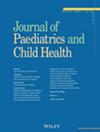Effects of Vitamin B12 Deficiency on Hemogram Parameters and Its Relationship With Thyroid Hormones in Infancy
Abstract
Background
Vitamin B12 is a vital vitamin essential for DNA synthesis, central nervous system myelination and erythropoiesis. Its deficiency, particularly during the rapid growth phase of infancy, can lead to neurological and haematological complications. This study aimed to investigate the relationship between vitamin B12 deficiency, hemogram parameters, and thyroid hormones in children under 36 months of age.
Materials & Methods
Conducted at Bilkent Children's Hospital between 2020 and 2024, the study evaluated 10 268 children, grouped based on their B12 levels (≤ 200 pg/mL: deficient, 200–800 pg/mL: normal).
Results
Vitamin B12 deficiency was identified in 7.8% of the participants, with the highest prevalence (12.3%) in the 0–12 months age group. In the deficiency group, WBC, NEU, NEU/LYM ratio, HGB and TSH levels were found to be lower, while PLT levels were higher. Neutropenia was found to be significantly more frequent in the low B12 group (p < 0.001). No significant difference was found in the prevalence of lymphopenia and leukopenia between the groups. Regarding thyroid hormone levels, fT4 levels were similar across groups, but TSH levels were lower in the B12-deficient group. A positive correlation was observed between TSH and HGB levels, while a negative correlation was noted with the NEU/LYM ratio.
Conclusion
In conclusion, B12 deficiency during infancy can cause significant changes in hemogram parameters. During this period, when physiological anaemia is common, MCV may remain normal. Neutropenia and a lower Neu/Lym ratio appear to be the most striking hemogram parameters associated with vitamin B12 deficiency in infants undergoing routine check-ups. Decreased TSH levels may be related to B12 deficiency, and the NEU/LYM ratio could serve as a predictor of thyroid dysfunction. This study stands out as a large-scale study demonstrating the effects of B12 deficiency on haematological and thyroid parameters.

 求助内容:
求助内容: 应助结果提醒方式:
应助结果提醒方式:


